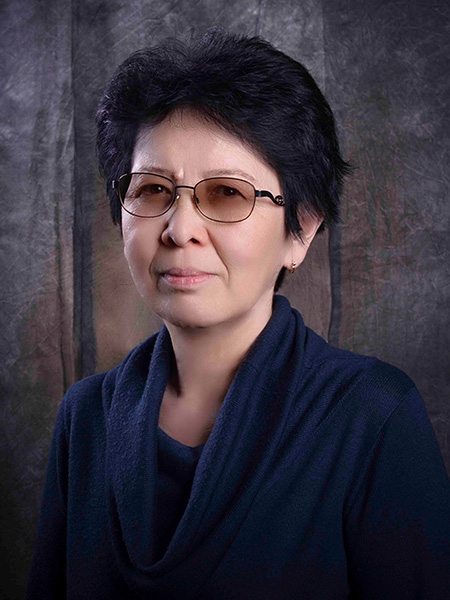
Gymnasiasten im Klassenzimmer hören dem Lehrer zu
The academic mobility of students today is one of the inevitable and acclaimed factors in the globalization of education, which for many countries is a conscious goal. In some countries, foreign students cover the shortage of local youth, enabling universities to preserve the existence of faculties, specialties, and traditions. It is already difficult to imagine the economies of some states without income from training foreign students. However, in this international movement of youth across borders not only positive aspects are seen, especially in recent years, and, in particular, concerning students from China. The reasons for the emergence of problems can be very different – political, social, and, as it now turns out, medical. The outbreak of coronavirus has become a difficult test for the international student movement, both in the direction from China and in the opposite direction, to China from other countries.
Before these events, Great Britain was afraid of being strategically dependent on the student population of this country. Recent data from the Office of Higher Education Statistics showed that more than 120,000 Chinese students studied in the UK in 2018-1919, representing one-third of all foreign students from non-EU countries [McKie, 2020] These students were mainly trained in master programs: at five universities, including Liverpool, where half of all full-time students were from China. According to official estimates, the income of these educational institutions from Chinese students was at least 1.7 billion pounds, which is more than 10 percent of the income [Baker, 2020]. However, Australia’s universities are even superior to Great Britain in terms of the number of Chinese investments received, for example, two leading Australian universities, the University of Sydney and UNSW Sydney received more than one-fifth of the total revenue from Chinese fees. According to the Ministry of Education, Chinese students form about 40% of the international student market at $35 billion, and in 2018, the average Chinese student provided about $72,000 of economic activity [van Onselen, 2020].
China is the largest source of international enrollment in American colleges and universities. According to the Institute for International Education, more than 360,000 Chinese students studied in the United States in the 2017-2018 academic year. This figure is 3 times more than compared with nine years earlier. Experts say schools in the US benefit from tuition, not only in the form of fees but also in the global perspective they add on campuses [Anderson and Svrluga, 2019].
New Zealand attracted 117,000 international students in 2018, including 36,000 from China, with international education earning $5,1 billion a year and being the fourth largest exporter, providing 47,500 jobs [Collins, 2020].
And despite this, the relations of Western countries with China have recently been overshadowed by the growing geopolitical tensions that affect universities, provoking scandals related to espionage, cyber-attacks, and academic freedom. Now, in response to the coronavirus epidemic, British Airways has suspended all flights between the UK and mainland China, while Australia, the United States, and several other countries have denied entry to foreigners traveling from China. As a result, thousands of students who went home to celebrate the lunar New Year stayed in China. To reduce the harm caused by these restrictions, Australian universities have decided to develop more flexible and affordable strategies for international students, including online tuition and postponement options.
However, the damage to Australian universities can still reach $8 billion (4,1 billion pounds). Executive Director of New Zealand Universities Chris Whelan said that universities “work with the appropriate government agencies to ensure that students will not be punished – either financially or educationally” [Collins, 2020]. He shares the general view that if students cannot return to their country of destination, they will need to consider reimbursing them. It is not their fault that they cannot return.
Experts from British universities are also worried about the emotional and psychological stress that many of their Chinese students experience, worrying about their families and the situation in their country. On the other hand, there is a clear understanding that it is important to prevent discrimination against them, hostility, fear, and suspicions from the local community [Grove, 2020]. Heads of several American universities help their students located in China return home and ask other students to refrain from planned trips [Lumpkin 2020].
Quarantine measures are carefully designed to maximize both containment effectiveness and long-term student confidence building. Western universities ensure that the spread of the disease is well contained and that any potential patients are identified and treated. University administrations promise to become more accessible, attentive and raise awareness on specific issues of supporting the Chinese student diaspora, removing all possible barriers, rumors, distortions, cynicism on the road to trustful and sustainable communication.
The epidemiological and social situation that struck China today can be repeated tomorrow in any other country on any continent. The test of flexibility, tolerance, empathy, humanism through which governments and educational systems of some countries of the world pass is essentially a test for all mankind. How it passes through it will testify to maturity and social responsibility, or vice versa, about the weakness of the spirit, selfishness, and inability to sympathize, empathize, and therefore about the imperfection of human society, at whatever stage of development it may be. Governments, universities, academic communities in different countries should learn to cope with the medical, economic and environmental consequences of global emergencies, although it would be better for everyone if such situations did not arise.
References:
McKie, Anna (2020). Minister Warns Against the UK Over-Reliance on Chinese Students. Retrieved from https://www.timeshighereducation.com/news/minister-warns-against-uk-over-reliance-chinese-students. Accessed on 03.02.2020.
Grove, Jack (2020). ‘Major Disruption’ to Student Mobility from Coronavirus Feared. Retrieved from https://www.timeshighereducation.com/news/major-disruption-student-mobility-coronavirus-feared?utm_source=THE+Website+Users&utm_campaign=5a71166ef5-EMAIL_CAMPAIGN_2020_02_03_03_15&utm_medium=email&utm_term=0_daa7e51487-5a71166ef5-60422349. Accessed on 07.02.2020.
Baker, Simon (2020). UK Universities ‘Increasingly Reliant’ on Chinese Fee Income. Retrieved from https://www.timeshighereducation.com/news/uk-universities-increasingly-reliant-chinese-fee-income. Accessed on 03.02.2020.
Van Onselen, Leith (2019). Chinese International Students Flee Australia. Retrieved from https://www.macrobusiness.com.au/2019/08/chinese-international-students-flee-australia/. Accessed on 03.02.2020.
Anderson, Nick, and Svrluga, Susan (2019). Universities Worry About the Potential Loss of Chinese Students. Retrieved from https://www.washingtonpost.com/local/education/universities-worry-about-potential-loss-of-chinese-students/2019/06/03/567044ea-861b-11e9-98c1-e945ae5db8fb_story.html. Accessed on 07.02.2020.
Collins, Simon (2020). Coronavirus: Overseas Students Seek Fee Refunds After China Travel Ban. Retrieved from https://www.nzherald.co.nz/business/news/article.cfm?c_id=3&objectid=12306031. Accessed on 07.02.2020
Lumpkin, Lauren (2020). Students Studying in China Told to Return to D.C. Area as Coronavirus Spreads. Retrieved from https://www.washingtonpost.com/local/education/students-studying-in-china-told-to-return-to-dc-area-as-coronavirus-spreads/2020/01/28/310ef662-41ee-11ea-b503-2b077c436617_story.html. Accessed on 07.02.2020.
Note: The views expressed in this blog are the author’s own and do not necessarily reflect the Institute’s editorial policy.
Gulnar Nadirova
Senior Research fellow
Nadirova Gulnar Ermuratovna graduated from the Oriental Faculty of Leningrad State University, in 1990 she defended her thesis on the Algerian literature at the Moscow Institute of Oriental Studies, in 2006 doctoral thesis - on modern Tunisian literature at the Tashkent Institute of Oriental Studies, Professor.

